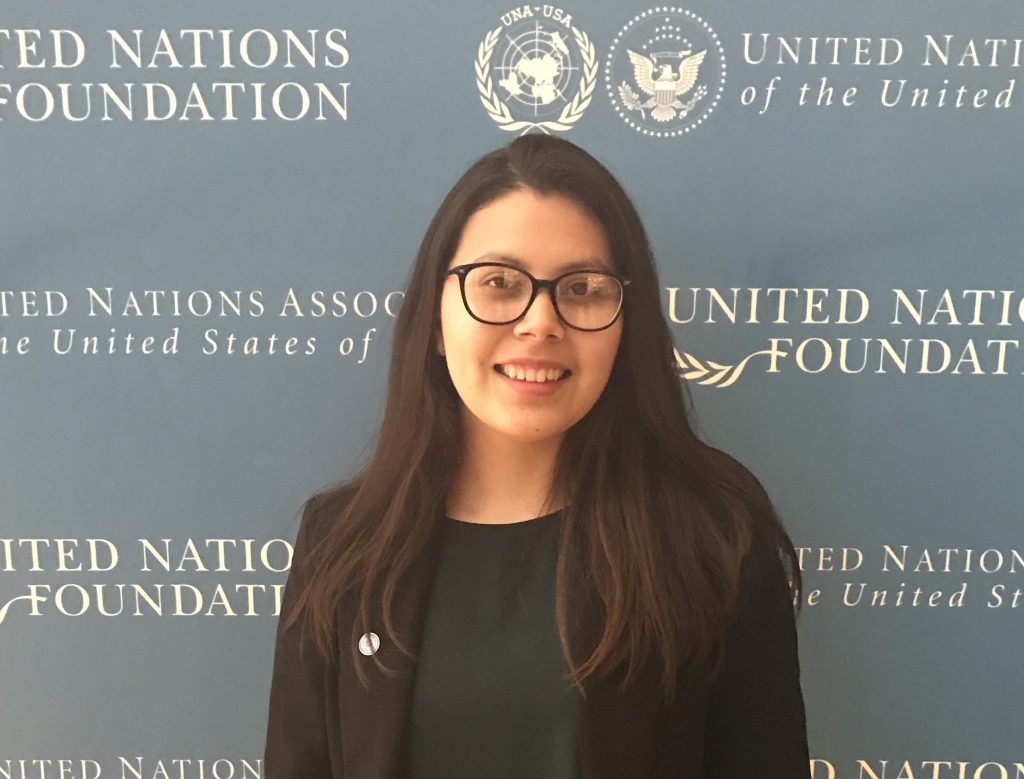
This spotlight is cross-posed from The Critical Issues Forum website. View the original here.
* * *
Participating in the CIF program, I’ve recognized the failures and successes of U.S. foreign policy firsthand by delving into nuclear nonproliferation research. Through the program, I had the opportunity to research nuclear weapon policy and share policy recommendations with esteemed diplomats and experts in nuclear disarmament. I conducted a case study on North Korea, highlighting its evolving nuclear program. Through CIF, I was able to recognize potential threats from unrecognized nuclear weapon states but most importantly, I’ve learned the importance of the Treaty on the Non-Proliferation of Nuclear Weapons (NPT) to establish its mission among the international community. Before the CIF Program, I viewed nuclear weapons as a powerful lethal device from the past. If it wasn’t for this program, I would not be able to view nuclear weapons as a threat for our future and learn about how close we’ve come to near nuclear mishaps without our knowledge. We often view nuclear weapons as an outdated topic of discussion while the public is unaware of potential evolving nuclear programs, illicit trafficking of nuclear materials, and growing nuclear arsenals due to a lack of nuclear education and emphasis of this subject matter in international policy.
After participating in the CIF program, I was selected to attend the International Forum of the Youth Communicators for a World without Nuclear Weapons in Nagasaki, Japan, and worked alongside youth communicators from Japan and Russia to construct a recommendation to reform nuclear weapon policy. As a youth communicator representing the United States, I recall that I wanted to take this opportunity to demonstrate that the U.S. has the potential to hold greater accountability for their actions. After presenting our recommendation to esteemed diplomats and nuclear nonproliferation experts, I was beyond grateful for the CIF program for giving me the opportunity to be in a panel discussion with the Under-Secretary General of the United Nations. From there, I realized the importance of advocating for nuclear nonproliferation and extend this mission in my college education. This experience made me feel a sense of obligation that I must reform international policy and become proactively involved in foreign relations in my career.
I had the opportunity to immerse myself in nuclear non-proliferation education, learn about the mechanics of nuclear weapons, and observe its humanitarian impact by speaking to the Hibakusha through my involvement in the CIF Program. I was always interested in the intersection between the sciences and international politics since I enjoy learning how the science community is able to impact international policy. Through my research in nuclear nonproliferation, I was given the opportunity to intersect my interests by learning the science behind nuclear weapons. Therefore, I am currently pursuing a minor in Science, Technology, and International Security while majoring in Government with a concentration in International Relations at Georgetown University. To continue my interests in nuclear non-proliferation, I am currently involved in the Comprehensive Nuclear-Test-Ban Treaty Youth Group. Additionally, I am involved in the Georgetown International Relations Club, Georgetown student government, and serve as a mentor for first generation students through the Georgetown Scholarship Program. Armed with my experience in the CIF Program, I hope to advance the representation of women of color in government, pursue nuclear education, and further involve myself in international politics
